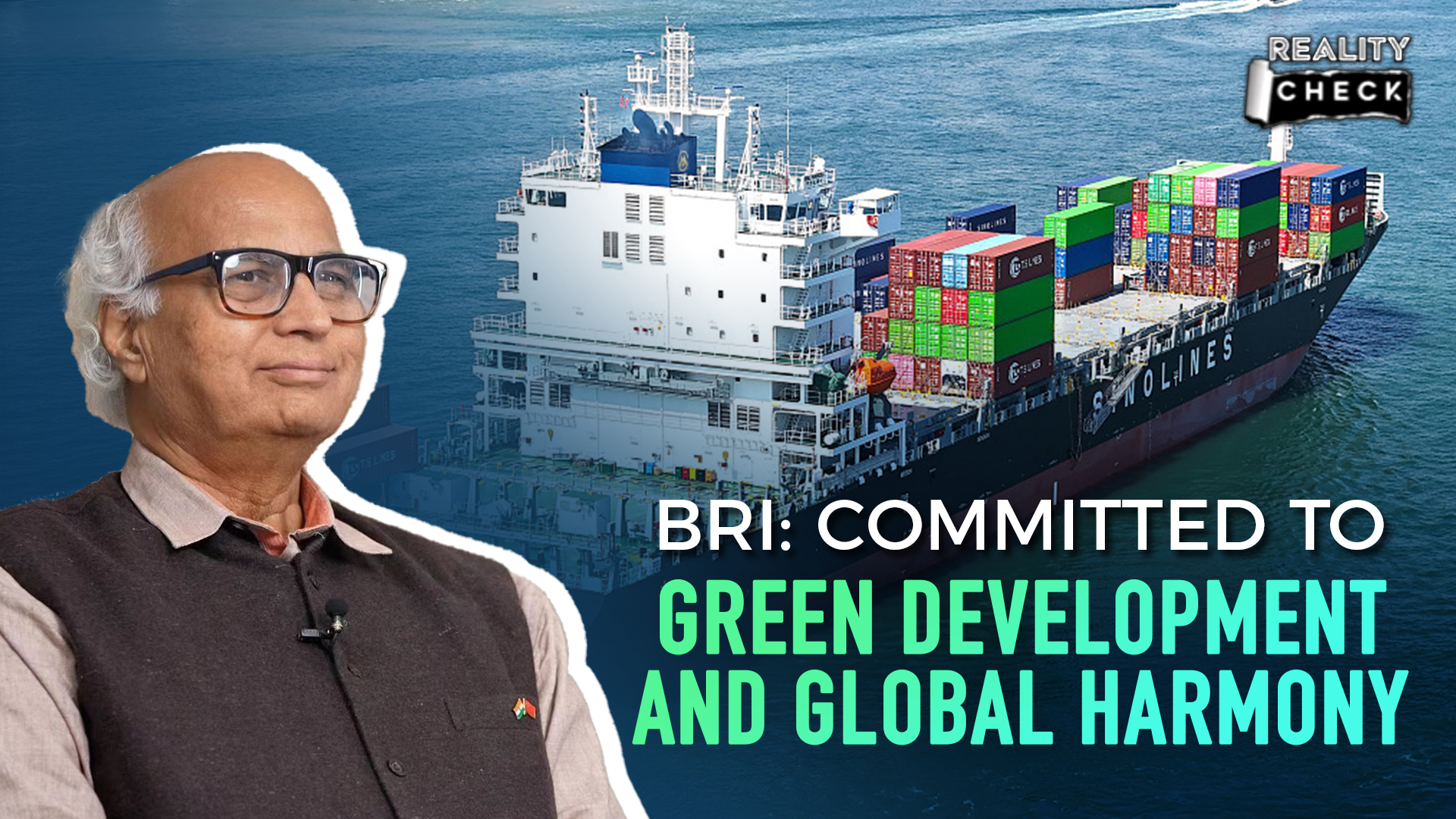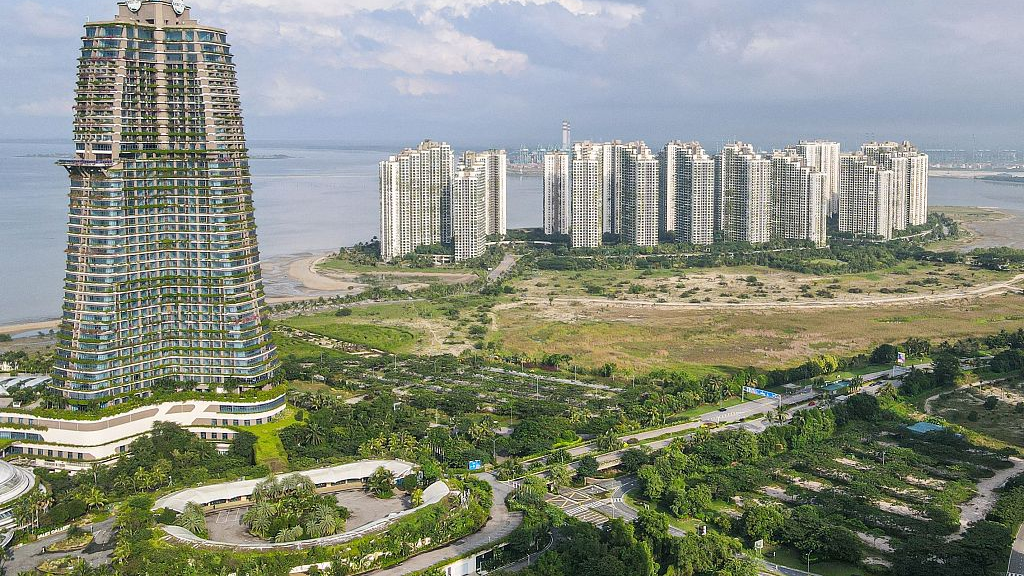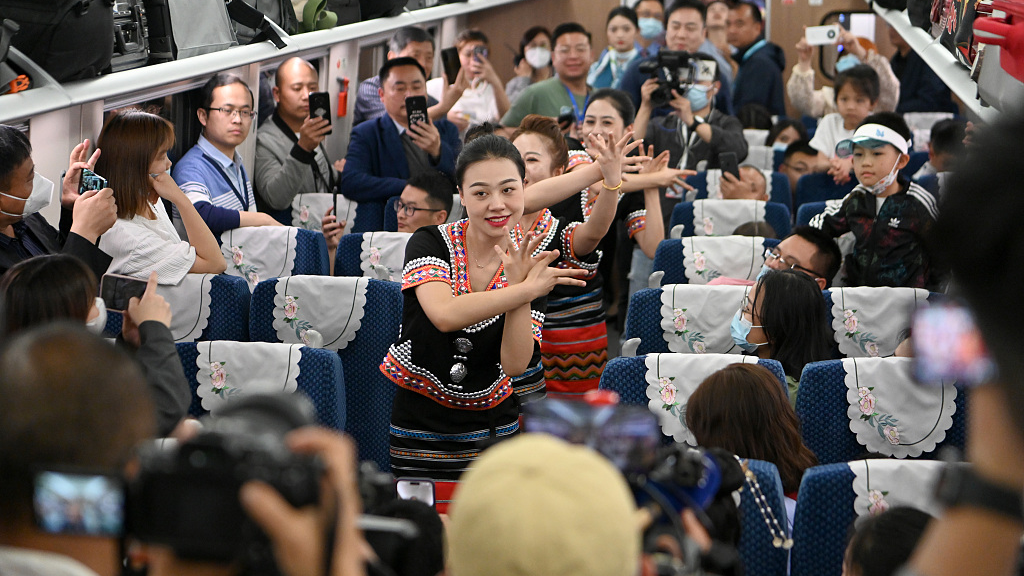04:51

Editor's note: This year marks the 10th anniversary of the Belt and Road Initiative (BRI). Although some European and American media have been accusing the BRI projects of polluting the environment and implementing neocolonialism in partner countries, is this really the case? What is the truth behind this smear campaign? In this episode of Reality Check, former Director of Operations of the Prime Minister's Office of India, Sudheendra Kulkarni, answered these questions. The views expressed in the video are his own and not necessarily those of CGTN.
The third Belt and Road Initiative Forum for International Cooperation, which will take place in Beijing later this month, is an important milestone in the history of connectivity and cooperation, both at the regional and global levels.
I am from India. I have been a strong champion of India joining the Belt and Road Initiative as an equal partner since its inception a decade ago. I believe that India becoming a partner country will greatly enhance the BRI's potential to create shared prosperity in Asia, especially South Asia. This will also provide a strong fillip to friendship and cooperation between the two great Asian civilizations.
Western powers are unable and unwilling to accept the fact that the BRI has become the largest and most beneficial project in the modern history of the world to promote common development and common prosperity. Therefore, they are spreading all kinds of false allegations to malign it. One such false allegation is that the BRI is not environmentally sustainable.
Let me ask these critics: Which global leader has been most consistently and passionately talking about green development, environmentally sustainable development, and socially equitable development? Undoubtedly, it is Chinese President Xi Jinping. He has given a wise new mantra, a wise new motto, which states "Lucid waters and lush mountains are invaluable assets." This is true not only for China, but also for every country in the world.
Which global leader has given a call for a transition from industrial civilization to ecological civilization? It is Chinese President Xi Jinping. He has repeatedly cautioned that man and nature should coexist harmoniously, and that if man seeks to exploit nature, the outcome will be counterproductive and humanity itself will become a victim.
Which is why the Belt and Road Initiative has the potential to become the greatest accelerator of green development globally in the years to come.

A general view of Carnelian Tower (L) and condominiums at Forest City, a development project launched under the Belt and Road Initiative, in Gelang Patah, Malaysia's Johor state, June 16, 2022. /CFP
A general view of Carnelian Tower (L) and condominiums at Forest City, a development project launched under the Belt and Road Initiative, in Gelang Patah, Malaysia's Johor state, June 16, 2022. /CFP
The other malicious allegation of Western powers is that the BRI is a Chinese ploy to subjugate partner countries into neocolonialism. I can best answer these allegations by recalling a popular saying in India. It translates as "A cat eats up 900 mice and then preaches religion."
Who colonized more than 80 countries in Asia, Africa and Latin America? European powers.
Who has been following the policy of neo-colonial hegemony since the end of World War II? The United States of America.
China has never colonized any foreign country, nor is it practicing neocolonialism in any form.
To cover up American deceitfulness, its officials are saying that they will offer developing countries a "better alternative" to China's allegedly "coercive and unsustainable" lending through the Belt and Road Initiative.
This is a big lie. An unprejudiced evaluation of BRI projects shows that it has brought significant benefits to partner countries – be it Laos and Indonesia in South-East Asia, Kazakhstan and Kyrgyzstan in Central Asia, or Kenya and Nigeria in Africa, to name only a few countries.

Passengers watch and take photos as train conductors dressed in national costumes dance on the high-speed China-Laos railway, April 13, 2023. /CFP
Passengers watch and take photos as train conductors dressed in national costumes dance on the high-speed China-Laos railway, April 13, 2023. /CFP
Let me give an example, the high-speed China-Laos railway line, constructed under the BRI. Fifty years have passed since the end of America's "secret war" in Laos from 1964 to 1973, when the U.S. rained down more than 2 million tons of bombs and 270 million cluster munitions, making Laos one of the most heavily bombed countries in world history. Even now, these cluster bombs are still being found.
During the construction of the China-Laos railway line, the Chinese were helping locals build infrastructure to pave the way for economic development, while the bombs that the U.S. military dropped continue to threaten lives and kill innocent people.
Truly, the cat that ate up 900 mice is now preaching religion to the whole world. The world should beware of this deceitful cat.
(If you want to contribute and have specific expertise, please contact us at opinions@cgtn.com. Follow @thouse_opinions on Twitter to discover the latest commentaries in the CGTN Opinion Section.)